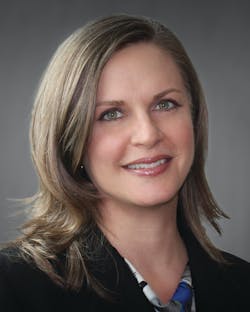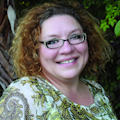An interview with Carmen L. Wiley, PhD, DABCC, FAACC, AACC President
How long has AACC’s Society for Young Clinical Laboratorians (SYCL)program been in existence and can you share a success story?
The SYCL was launched in 2004 with the goal of helping the next generation of laboratory medicine leaders flourish in their careers with crucial networking, mentorship, and recognition opportunities. I served as a SYCL chair member in 2010 and am very proud of what we have accomplished with this program. Being a part of SYCL has been beneficial to the careers of many young clinical laboratorians. Here is one example:
When AACC member Dr. Robert Nerenz was attending his first AACC Annual Scientific Meeting in 2013, he decided to attend the annual ABCC-SYCL reception. This popular networking and recognition event is where the American Board of Clinical Chemistry (ABCC) acknowledges new diplomates and where SYCL presents a series of awards and honors. Amid the professional appreciation, the ABCC-SYCL reception also offers attendees from across the career spectrum the opportunity to meet and greet each other. Nerenz was doing exactly that—meeting and greeting—when he felt a tap on his shoulder. Turning to face the person behind the tap, he saw his fellowship program director, Dr. Ann Gronowski, who had someone she wanted him to meet. That someone was Dr. Ronald Whitley, a professor at the University of Kentucky in Lexington, who at that time was recruiting for a position. Based on a brief conversation with Whitley, Nerenz applied for and ultimately landed his first post-fellowship position, an assistant professor of pathology and laboratory medicine.
“Raising the profile” of clinical laboratorians includes both diagnostics and regulatory affairs. For those of us who can’t attend Capitol Hill briefings, what can we do?
Raising the profile of laboratory medicine is indeed an important goal for the field, and in fact is one of the goals under AACC’s new Strategic Plan. In the new plan, we aim to quantify and demonstrate the value of laboratory medicine.
We will begin this work by increasing the evidence base demonstrating the link between lab tests, lab data, outcomes, and costs. We will also develop materials that give members the tools to serve as healthcare consultants in their organizations. We are also considering investing in a physician and a public awareness campaign showcasing the value the lab brings to patient care. We’ll share much more information about this as the plan progresses.
Who is utilizing Lab Tests Online and to whom is this service marketed toward?
As you know, clinical laboratory tests provide essential answers to clinicians so that patients get accurate diagnoses and effective treatment. Lab Tests Online is a health information web resource designed to help patients, caregivers, and medical professionals understand the many laboratory tests that are a vital part of medical care.
Lab Tests Online is available in 12 languages through 14 country sites. The content on each site is translated and adapted to policy and practice specific to that country. Countries with Lab Tests Online sites include: The United States, Australia, Brazil, China, Czech Republic, France, Greece, Hungary, Italy, Korea, Poland, Spain, Turkey, and the United Kingdom.
What highlights can attendees look forward to at the 71st AACC Annual Scientific Meeting & Clinical Lab Expo in Anaheim, CA this year?
The cornerstone of every AACC Annual Scientific Meeting is the lineup of five plenary sessions delivered by world-renowned scientists. This year’s stellar plenaries will look in-depth at how to accelerate the adoption of new biomarkers in clinical practice, as well as how biomarkers are guiding targeted breast cancer treatments. The plenaries will also explore how genetics influence behavior and neurological disorders, advances in clinical genomics that are enabling more personalized patient care, and what’s next for emerging “extreme” molecular diagnostic methods that can be performed in seconds.
Additional highlights of the meeting will include:
- A special session that will shed light on the little-understood nuances of direct-to-consumer genetic tests, with a focus on how healthcare professionals can enable patients to benefit from these tests while also raising public awareness about these tests’ limitations.
- The AACC Disruptive Technology Award Session, which will feature innovative tests for sepsis and colon cancer, as well as a new diagnostic platform based on lab-on-cartridge and artificial intelligence technology.
- Brand new ePoster sessions during which select presenters will display their abstracts on an interactive screen that can zoom in on figures. These sessions will supplement the existing printed poster sessions and will enable presenters to discuss their innovative research with a larger audience.
The Clinical Lab Expo will feature more than 800 companies exhibiting the latest clinical laboratory products and services. This year, attendees will have the opportunity to explore the cutting edge of laboratory medicine in the new AACC Innovation Zone located in the exhibit hall. The Innovation Zone will showcase presentations on groundbreaking technology from numerous pioneers in the diagnostic sphere, including the AACC Disruptive Technology Award semi-finalists and finalists.

